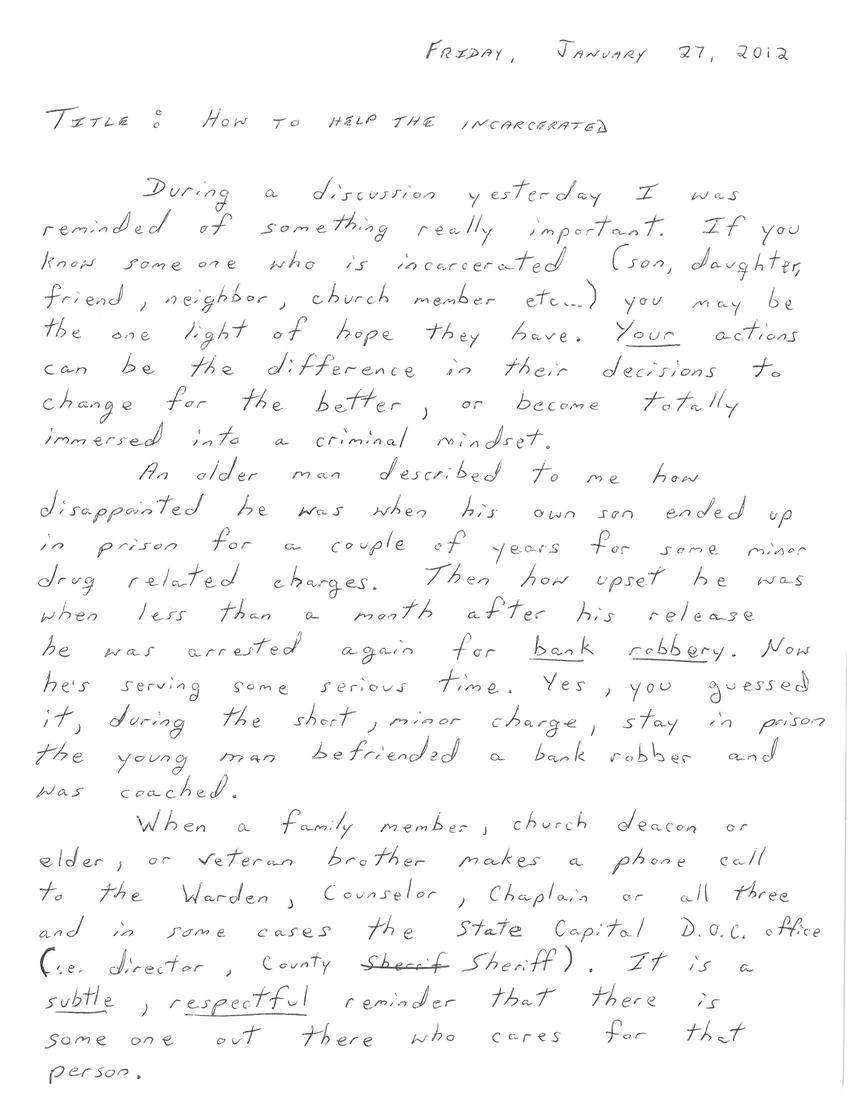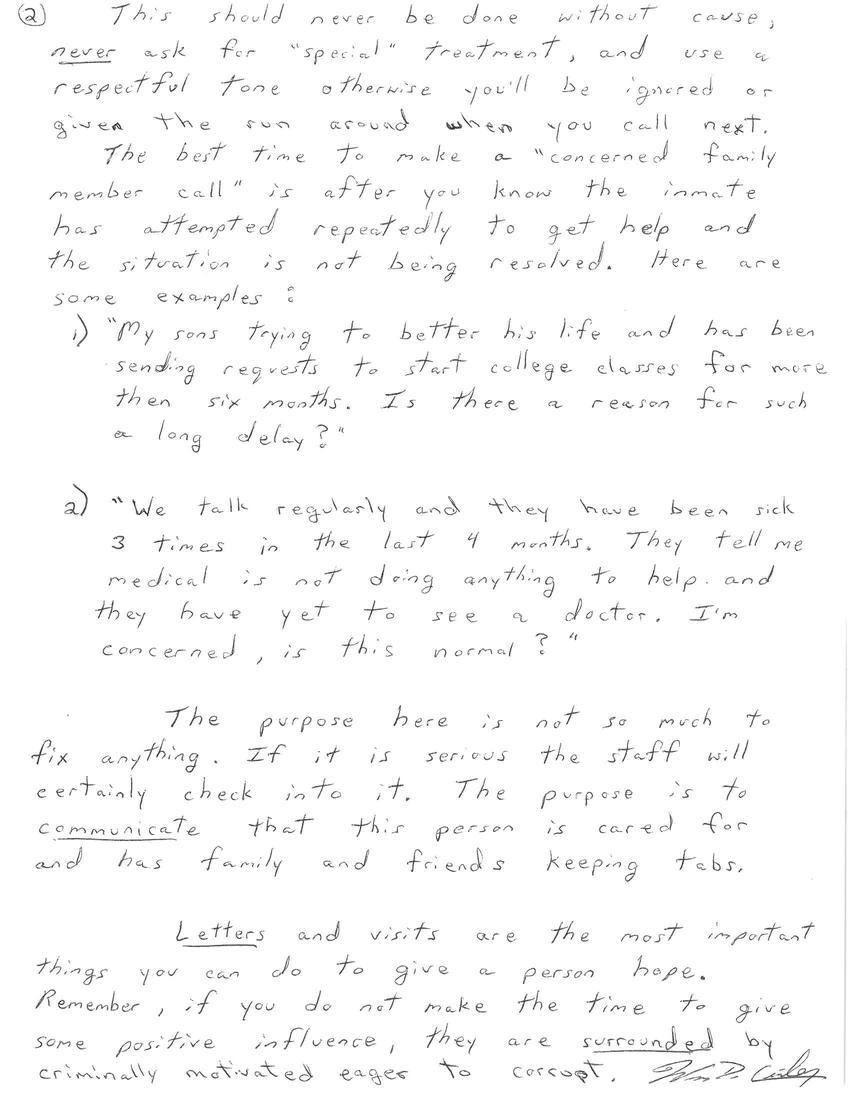
Transcription
Friday
January 27, 2012
How to Help the Incarcerated
During a discussion yesterday, I was reminded of something really important. If you know someone who is incarcerated (son, daughter, friend, neighbor, church member, etc.) you may be the one light of hop they have. Your actions can be the difference in their decisions to change for the better or become totally immersed into a criminal mindset.
An older man described to me how disappointed he was when his own son ended up in prison for a couple of years for some minor drug-related charge. Then how upset he was when less than a month after his release, he was arrested again for a bank robbery. Now he's serving some serious time. Yes, you guessed it: during the short, minor stay in prison, the young man befriended a bank robber and was coached.
When a family member, church deacon or elder, or veteran brother makes a phone call to the warden, counselor, chaplain, or all three, and in some cases, the state capitol D.O.C. office (i.e. director, county sheriff), it is a subtle, respectful reminder that there is someone out there who cares for that person.
This should never be done without cause, never ask for "special" treatment. Use a respectful tone, otherwise you'll be ignored or given the runaround when you call next.
The best time to make a "concerned family member call" is after you know the inmate has attempted repeatedly to get help and the situation is not being resolved. Here are some examples:
1. "My son's trying to better his life and has been sending requests to start college classes for more than six months. Is there a reason for such a long delay?"
2. "We talk regularly and they have been sick three times in the last four months. They tell me medical is not doing anything to help and they have yet to see a doctor. I'm concerned. Is this normal?"
The purpose here is not so much to fix anything. If it is serious, the staff will certainly check into it. The purpose is to communicate that this person is cared for and has family and friends keeping tabs.
letters and visits are the most important things you can do to give a person hope. Remember, if you do not make the time to give some positive influence, they are surrounded by the criminally motivated, eager to corrupt.
[signature]
Other posts by this author
|
2020 may 5

|
2020 apr 29

|
2020 apr 17

|
2020 apr 14

|
2020 apr 12

|
2020 apr 3

|
More... |



Replies